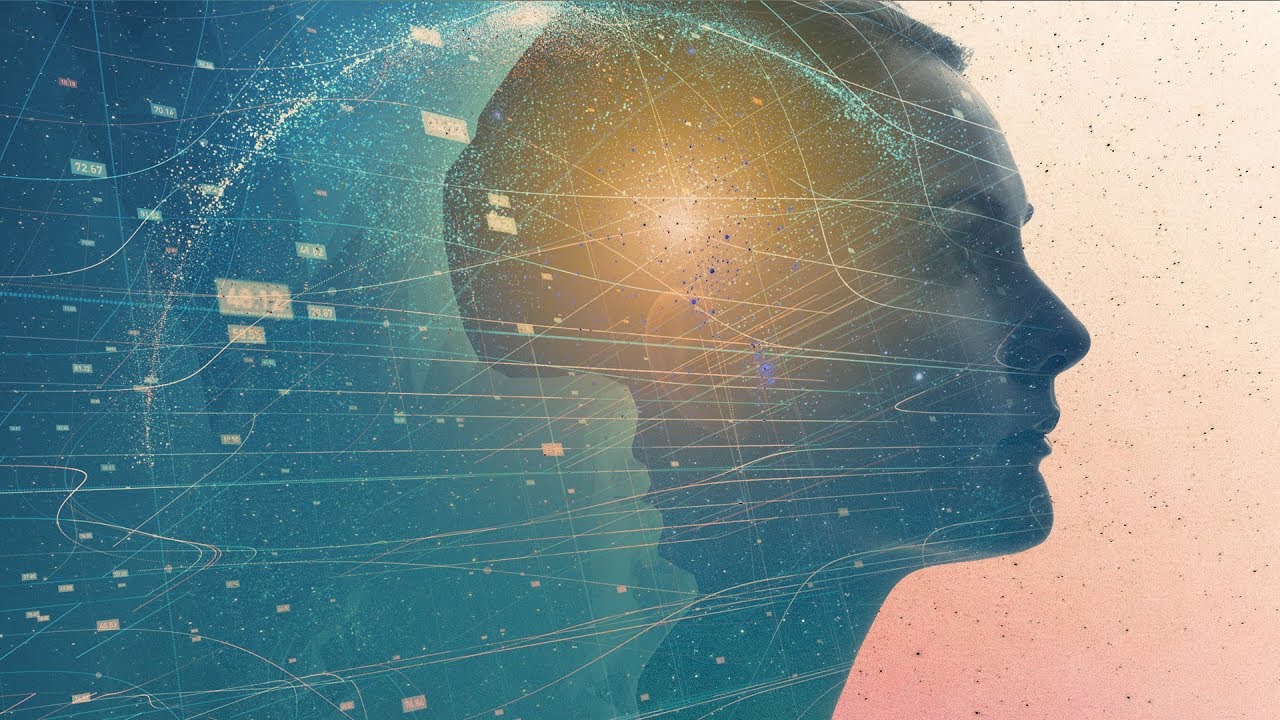Cambridge University
In a new film, leading Cambridge University researchers discuss the far-reaching advances offered by artificial intelligence – and consider the consequences of developing systems that think far beyond human abilities.
Source
AI: Life in the age of intelligent machines




I hope the world will change to the best
It is my only wish 😔😔😔😔😔😔😔😔😔😔😔
This is to happen
I hope that intelligent machines will help people in the future.
We have internet, planes, DNA reports… All of this is already exciting, but we take our achievements for granted. AI is happening now.
I have scripted the first 6 mins for educational purposes. Adding it below for other teachers who might be interested across the globe. Thank you CU for this fantastic resource!
Artificial Intelligence – it will change everything.
It is not a new concept. In fact, we’ve been writing about AI almost as long as stories have been written and we’ve been beguiled by novels, movies, and TV series about it ever since. We’ve seen it developed from Turing’s simple predicting machine – beating our best at chess and now deep learning programs that promise to eradicate disease, predict crime, solve world poverty, drive our cars, understand world economies and save our planet through climate change predictions. We’re already using digital assistants that talk to us, developing robots that walk like us but what will happen when we develop systems that think like us or beyond human capacity. We’re stood at the edge of the fourth Industrial Revolution and we need to shape our future carefully.
So, what do we need to know about AI?
‘There is not going to be anyone on the planet in the next 50 years who is going to be affected for better or worse by artifical intelligence in some way. There’s not going to be anyone who isn’t affected by some of the big challenfes that we face like climate change, biodiversity loss, sustainability that artificial intelligence may help us to solve.’Sean O hEigearthaigh – Centre for the Study of Existential Risk
‘Although the word itself wasn’t actually coined until 1956 at Dartmouth, at the very famous conference on artifical intelligence and machine learning, in our cultural imaginations in the West it goes right back to Homer. What’s so intriguing is that there’s a massive prehistory in literature and film in our cultural imagination which is arriving with this artificial intelligence technology and shaping the way people are thinking about it beyond the reality of what’s actually happening.’
Dr Sarah Dillon – Director of AI Narratives and Justice
‘What’s made it possible is the speeding up of computers the fact that number crunching is far faster now because of Moore’s Law which makes computers get twice as fast every couple of years. One of the really exciting things that’s happened in AI and the reason it’s been so revolutionary is that we have massive amounts of data for certain problems. So we have the whole internet worth of text to learn about languages, we have again the whole internet worth of images to learn about what images look like and these fields have progressed very quickly but that’s hitting the limit.’ Professor Lord Martin Rees – Centre for the Study of Existential Risk
‘Many of the biggest challenges that we face in the coming century will involve making sense of huge amounts of information and complex interconnected systems, whether it’s making sense of out genomes, phenomes, proteomes or all of the complicated systems that make up the ecosystem around us. Human intelligence can make in-roads into this but human intelligence in combination with artifical intelligence aloows a much more powerful ability to really understand these issues. In machine learning you give the computer lots of data and then the computer has an algorithm that finds patterns in data and also includes the performance of the computer at some task. An that sort of key idea learning from data is really what’s revolutionised AI in the last decade or so.’
Sean O hEigearthaigh – Centre for the Study of Existential Risk
‘We are using it in our mobile phones, we are using it with face recognition, we are using it in medicine, in law and so on so it’s already part of our daily life. There’s nothing intrinsically magical about artifical intelligence. It’s just very clever algorithms that are being executed in very clever ways.’ Dr Mateja Jamnik – Department of Computer Science and Technology
In some ways it’s easier to imagine the potential downsides of AI than the upsides. Now, partly I think this is becase we all know the Hollywood images of the machine intelligence breaking down our door and coming in with a machine gun, whereas the positive sides are being dreamt up by thousands of people all over the wold, imaginative young people who see a problem and think about how they can solve it using AI, so it’s really difficult to predict all of the countless ways in which it’s going to make our lives better whether that’s for example just recommending a new song you’re going to like or curing us of cancer.’
Dr. Stephen Cave – Executive Director
There is great public concern about the impacts of automation and robots on our jobs. Some pessimistic studies report that up to 40% of jobs.
‘With the first Industrial Revolution we mechanised much of human labour, we replaces human muscle power. What intelligent machines might do is also replace human brain power so it’s natural that we’re asking ourselves- well what do we do where machines can do everything better than we can?’ Dr. Stephen Cave – Executive Director
‘And at that point we might want to start asking ‘Is the paradigm of everybody working a nine-to-five job one that we want to stay in long term.’ I would ask the question are there things that we value in society at the moment that we currently don’t build into our models of finance and economics?’ Sean O hEigearthaigh – Centre for the Study of Existential Risk
‘I think for this to happen obviously there’s got to be massive redistribution of wealth otherwise the wealth earned by the vomputers is going to go to the huge companies or to the individuals who own them and have the skill. So, I think we need massive socialist redistribution so to set up very large numbers of publicly funded and respected, dignified jobs as carers and other kinds of social work.’
Professor Lord Martin Rees – Centre for the Study of Existential Risk
‘Still we have to think about what that transition looks like. We have to make sure that nobody is left behind so we have to think about the kind of skills we need and how to manage the disruption of people losing jobs and seeking new ones.’
Dr. Stephen Cave – Executive Director
‘History tells us new jobs will be created that we can’t even imagine yet. Imagine talking to your grandparents 50 years ago and telling them that the software engineer is going to be the job of the future.’ ’ Dr Mateja Jamnik – Department of Computer Science and Technology
AI is developing against a backgrop of a world that is becoming digitised.While this brings breat benefits there are concerns.
(5.55 min)
It's going to be catastrophic.
People have two ears and one mouth but they made the speakers stereo!
Thank you for the knowledge, Cambridge University!
“The robots are coming! The robots are coming!” ~ Andrew Yang 2020
It helps me learn about AI and trains my aural comprehension,I like it~
Kyle Reese: The Terminator's an infil-tration unit. Part man, part machine. Underneath, it's a hyperalloy combat chassis,mircoprocessor-controlled, fully armored. Very tough…But outside, it's living human tissue. Flesh, skin, hair…blood. Grown for the cyborgs.
Memento Mori.
🤖💖🤖
OK
Humanity is playing with fire.
Using AI is not a problem. The problem is that humans do not use technology wisely and correctly.
don't forget the human potential what human can do increasing human potential is more important
has we know we are only using 5% of our mind no one can thing as massive as we can please understand yourself to make best A.I
not only A.I but best or better than us. we can much more than you think. i can thing that we lost our hope and demortalised by only some failure actually that were not failures we are use to be very lazy . to change the world make your time utilize not kill.
Answer me if you can
Homework time